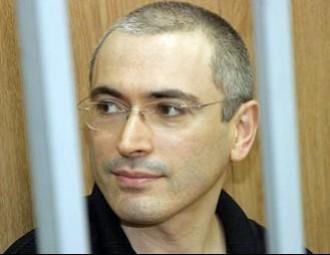Putin claims he will pardon Khodorkovsky

The most famous Russian political prisoner has written a clemency application, Vladimir Putin says.
Following a news conference on December 19, Putin told reporters that Mikhail Khodorkovsky recently "wrote to me asking for pardon. He has already spent over 10 years in confinement. This is a serious punishment."
As RFE/RL reports, Putin added that Khodorkovsky said his mother was ill. "Considering all those circumstances, I believe it is possible to make a relevant decision and a [presidential] pardon decree for him will be signed in the nearest future," he said.
Khodorkovsky's lawyers denied the former head of the now dismantled Yukos oil company had asked for a pardon. Attorney Karina Moskalenko said, "I haven't heard anything about him requesting a pardon."
His legal team, however, later on December 19 said they would make no more statements before having met with Khodorkovsky, who is currently in a prison colony in the north-western region of Karelia.
Mikhail Khodorkovsky was arrested in October 2003 and later convicted of tax evasion. He and his business partner, Platon Lebedev, were sentenced to eight years in prison. Khodorkovsky had refused to heed warnings from President Vladimir Putin that oligarchs were to avoid politics, and his imprisonment was widely viewed as politically motivated. In 2010, just a year before he was scheduled to be released, Khodorkovsky was convicted and sentenced to a second prison term for money laundering and embezzlement. He is set to be released in August 2014.
-
03.01
-
07.10
-
22.09
-
17.08
-
12.08
-
30.09










































